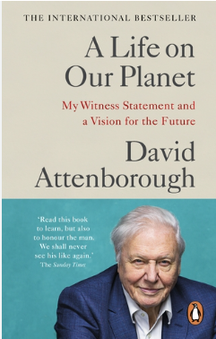Jochem Rietveld, Research Assistant
Jochem looks at how the world responded to the COVID-19 pandemic. In particular, he investigates global pandemic preparedness in the pre-COVID-19 era and the early pandemic response.
Jochem is a Research Associate at the Centre for the Study of Existential Risk. He holds a PhD in International Relations & Comparative Regionalism from LUISS Guido Carli & the University of Warwick. He has previous experience in think tank research, academia, politics, and the NGO sector.
Keywords: COVID-19, pandemic preparedness, pandemic response, international health governance.
Please can you tell us about your main area of expertise?
My main areas of expertise are in International Relations and Comparative Regionalism. Methodologically, I have expertise in the qualitative research method of process tracing and I have rich experience in conducting qualitative research interviews, which is a key plank of our Lessons from COVID-19 project. Having worked for close to two years on the Lessons from COVID-19 Project, I have developed an acute understanding of the choices made by the international community at large, international institutions, and individual states, in the pandemic response, and where the most important lessons lay going forward.
Can you tell us about your pathway to CSER?
I came out of my PhD in the midst of the pandemic and felt like I wanted to contribute to our understandings of an event which has touched, and sadly, taken the lives of so many. Previously, I had conducted analysis on the global health response to the threat of antimicrobial resistance (AMR), which bears similarities to the COVID-19 response in terms of the multifaceted institutional response it evoked, albeit COVID-19 clearly constituted a direct, materialising risk whereas AMR arguably resembles more of a looming, growing risk. It has been meaningful to start drawing the key lessons from the pandemic response, so we can start thinking about ways to improve preparedness and responses going forward.
Please tell us about your current research at CSER?
My research focuses on the global pandemic response from a Global Catastrophic Risk (GCR) perspective. Concretely, this means that I analyse, with my colleagues on the Lessons from COVID-19 team, where the most impactful decisions and actions were made during the pandemic response, with the aim of improving pandemic preparedness, future responses and increasing wider societal resilience against a broad class of risks, including climate change and the loss of biodiversity. The insights we gather in the Lessons from COVID-19 pandemic often relate to broader governance lessons, which are almost by definition transferable, and should therefore speak to the management of other risk areas, such as the safe governance of AI, as well.
What drew you to your research initially and what parts do you find particularly interesting?
As mentioned, I was drawn to the research because of a concern over how the pandemic unfolded, and particularly, the inability of many governments to adequately respond to this global health challenge. As a political scientist, this made me think of ways to improve preparedness, governance systems and response mechanisms, so that current and future generations will be better protected against pandemics. My hope is that our project will at least provide a few of these answers.
What are your motivations for working in Existential Risk?
I’m motivated by concern about extreme risks, predominantly around climate change and the loss of biodiversity, as these touch on key factors -climate stability and rich and diverse ecosystems- that make human civilisation possible in the first place. Through my research, I see an opportunity to contribute, albeit obviously modestly as any individual researcher can, to understandings of how we can better prevent, prepare for, and manage these kinds of systemic risks and therefore build futures that are more sustainable for both humanity and our natural environment.
What do you think are the key challenges that humanity is currently facing?
For me, the key challenge is climate change. I believe that, as humanity, we are not doing enough to address this challenge and its multifaceted impact, that is increasingly felt across the world. Leaders will need to show more courage, leadership and ambition in bringing emissions down more quickly, include their societies in their plans to do so, show innovation in their approaches, and, most importantly, let their countries lead by example. It is urgently time to move from ‘talking the talk’ to ‘walking the walk’- it is encouraging to see that more and more states are now transitioning to this implementation phase, but continuing and accelerating this process remain urgent.
For people who are just getting to grips with Existential Risk, do you have any recommendations for reading, people to follow or events to attend?
Although not coming directly from a GCR angle, I’d strongly recommend reading ‘A Life on Our Planet’ by David Attenborough. It drives down the point so well that we need to respect our natural environment a lot more than we currently do. The earth, as our common home, provides for everything that we need.

I believe we have a deep responsibility to restore the natural wealth and beauty of our planet, whether that be through protecting species at risk, reforestation projects, or bringing CO2 emissions down in a more rapid and targeted way. Restoring the balance between human activity and the natural world will be the key recipe to addressing the issues of climate change, the loss of biodiversity, and pandemics, going forward, but it has the potential do so much more than that: offering more green spaces for people to live in, more sustainable and locally based food production, and most importantly, a future we can all be hopeful about of living in.